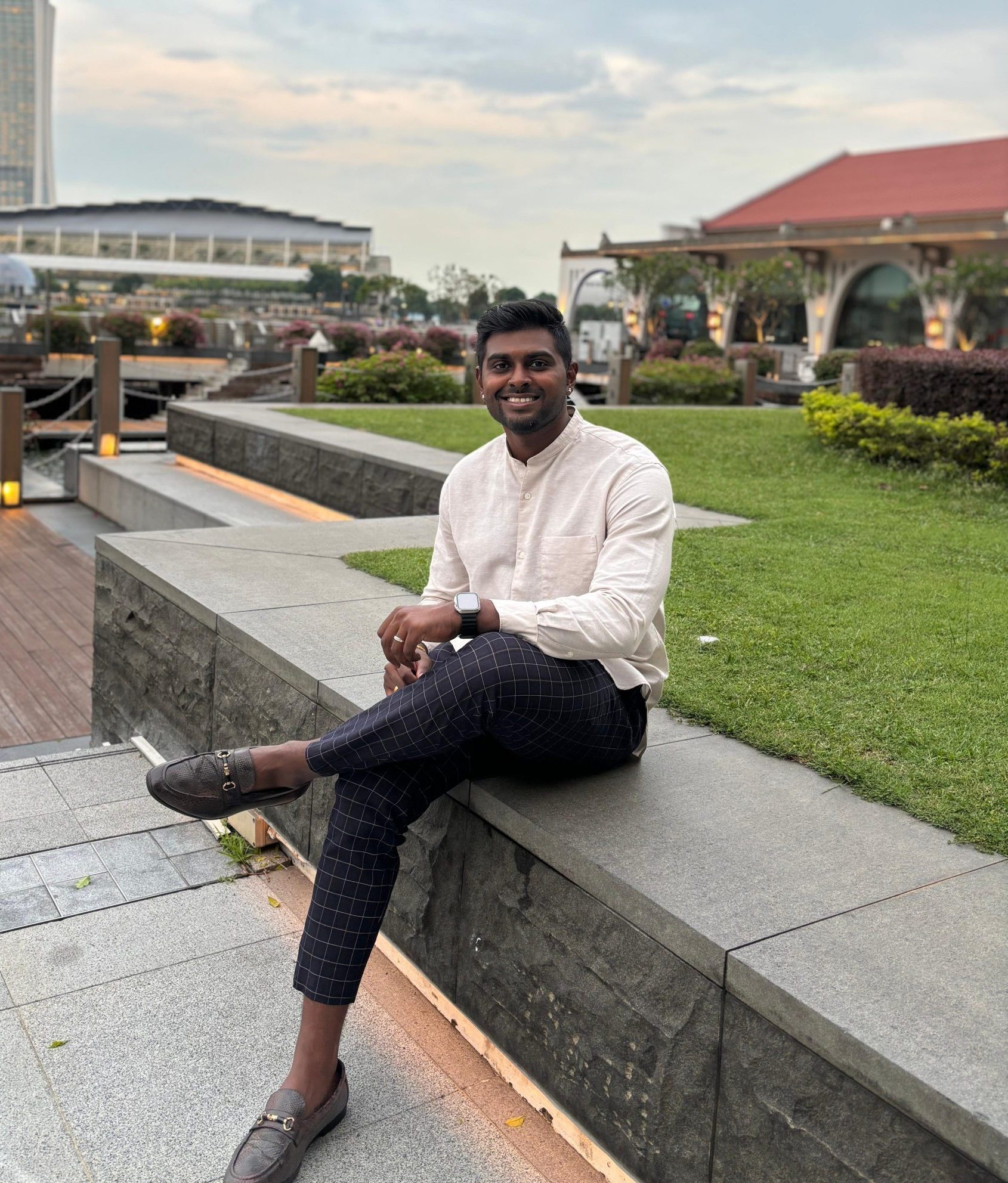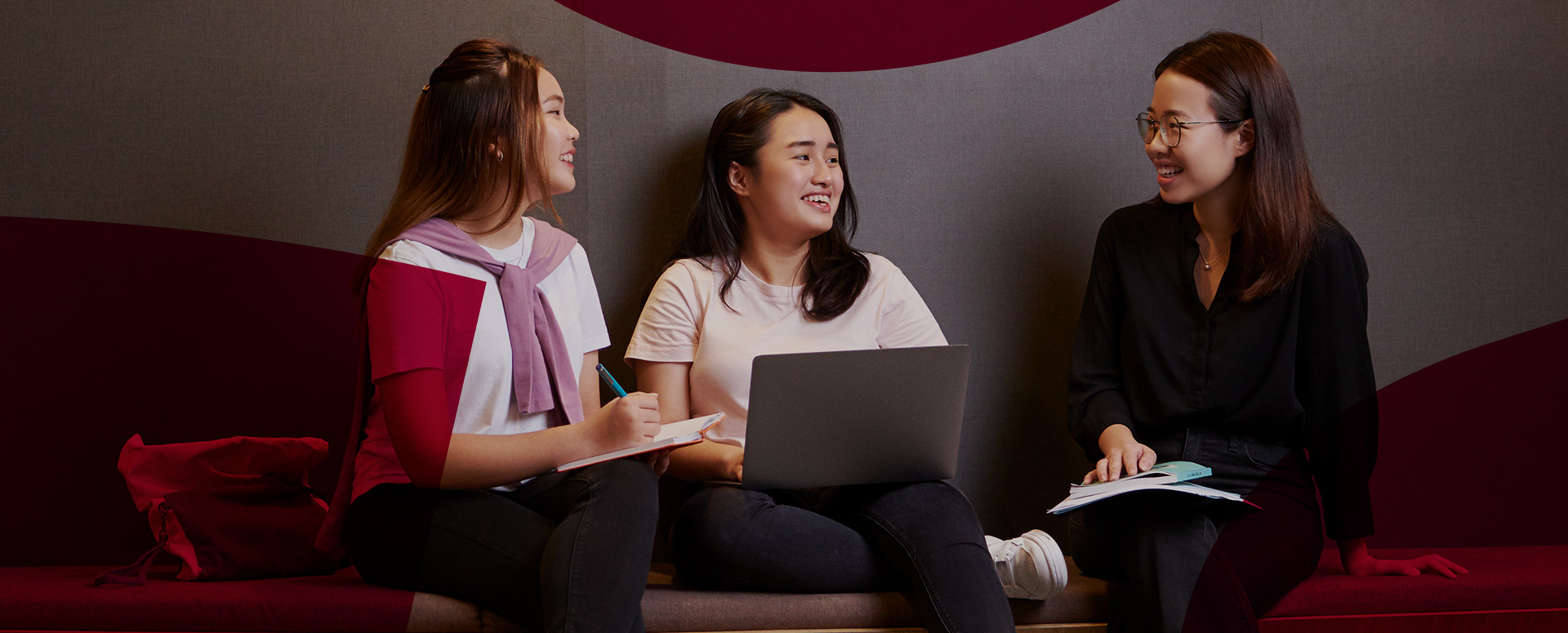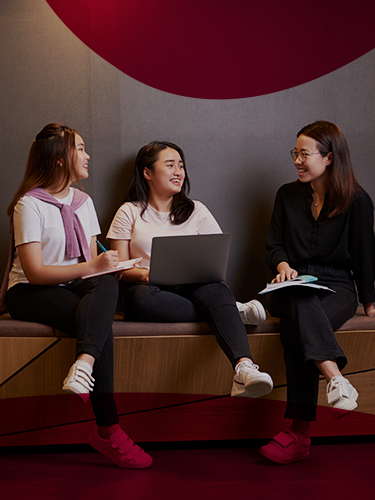
Naethan Vinod S/O Mahedran
What was your highest qualification before taking up this part-time diploma?
My highest qualification was Nitec in Mechatronics (Medical Technology)
What kind of work or industry were you in before enrolling — and was it related to what you studied? If not, what inspired your shift to a new field?
I’ve been in the sports and fitness industry for about 5 to 7 years. During the COVID period, I also worked in hospitals under the rehabilitation department as a therapy assistant. In 2018, I pursued various professional certifications to become a personal trainer, group exercise trainer, and even a physiotherapy assistant. Currently, I’m working full-time as a Physical Training Instructor (PTI) at Tekong under a special project with True Fitness, while pursuing my Part-time Diploma in Sport and Exercise Sciences.
What made you realise it was time to reskill or upskill? Was there a defining moment or trigger at work or in your life?
I’ve always had a goal to become a physical education educator. That ambition made me realise it was time to further my education in sports science and build a stronger foundation for my future.
How did you hope this diploma would change your career or open new opportunities?
By taking this Sports Science Diploma, I aimed to deepen my understanding of the human body and exercise physiology—knowledge that would directly enhance my effectiveness as a Physical Training Instructor. While I had solid hands-on experience, I wanted to complement that with strong theoretical foundations. This diploma has empowered me to design more evidence-based training programmes, approach injury prevention with greater precision, and prepare for more specialised roles within the fitness and rehabilitation industry.
Did you need to consider family or personal commitments before deciding to study part-time? What were some of those considerations?
As someone who’s married, balancing work and committing to a part-time diploma required significant consideration. Working full-time as a Physical Training Instructor at Tekong, time management was my biggest concern. My work hours can be long and irregular, so I had to carefully plan how to fit in study time without compromising quality time with my wife. We discussed how our evenings and weekends might be affected, and made a joint commitment to make it work. It came down to setting a clear schedule and being disciplined — effective time planning was crucial.
Were you nervous about anything before starting the course?
I was a bit nervous about returning to formal study after being focused on practical application for so long. I wondered if I could effectively balance the academic demands with my already packed work schedule at Tekong. Now that I’ve graduated, I feel a great sense of accomplishment. It wasn’t easy juggling everything, but completing the diploma has given me a real boost in confidence in my knowledge and abilities as a sports science professional.
What was the biggest challenge you faced as a part-time student — and how did you overcome it?
The toughest challenge was managing time and energy. Working full-time and then dedicating evenings or weekends to study was physically and mentally draining. I overcame it by being extremely disciplined with my schedule — breaking study sessions into smaller, manageable blocks and using any free moments wisely. My wife’s support and understanding made a big difference, and so did my supervisor’s flexibility in adjusting my work schedule. Even though I had to make up for it in other ways, that support helped ease the pressure.
Did your employer or company provide any support, such as flexible hours, sponsorship, or encouragement?
Yes, my supervisor at True Fitness was kind enough to alter some changes to my work schedule to accommodate my studies. While there wasn’t a formal sponsorship, their willingness to adjust my hours, even if it meant I had to put in extra work to cover lessons, was a significant form of support and encouragement. It showed they valued my professional development.
Have you been able to apply what you learned to your current job? Can you share an example?
Definitely. One of the most immediate applications has been in educating recruits about proper exercise techniques and the science behind them. For example, learning more about biomechanics and exercise prescription helped me tailor training programmes to suit the specific physical demands of every individual – it’s no longer just about general fitness routines for everyone. I can now also apply evidence-based strategies for performance improvement and injury prevention!
Have your studies opened up new opportunities, such as promotions, new roles, or added responsibilities?
Yes, I gained enough confidence and technical know-how to propose and develop more data-driven marketing content. This initiative opened up new responsibilities for me as a content writer focusing on analytics topics in the tech space —something I wouldn’t have dared to push for before this diploma.
How has this experience changed your confidence, mindset, or outlook on learning?
It’s given me not just a formal qualification, but a stronger mindset too. I’ve come to believe that it’s never too late to learn. This journey has made me more determined and goal oriented.
What advice would you give to someone who’s thinking about upskilling or reskilling but feels unsure or afraid to take the first step?
Your age, gender, or family circumstances shouldn’t hold you back from pursuing further education. In today’s world, upskilling is more important than ever. Don’t wait to feel ready — start small and start now. Every expert was once a beginner who chose courage over comfort. You don’t need to have it all figured out — you just need to begin. Your future self will thank you.




 TOP
TOP
